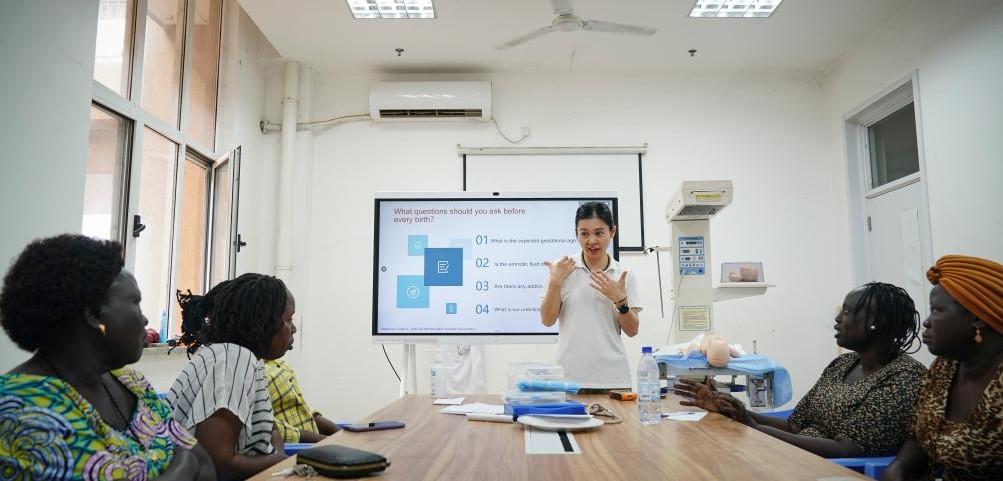At Juba Teaching Hospital, Chinese medical workers have launched an initiative to teach South Sudanese health care workers Mandarin, aiming to improve communication with patients and strengthen bilateral ties.
For Emilia Kiddo, a new intern at the hospital, learning Mandarin has been challenging but rewarding.
“To learn Mandarin is not easy, but now I can greet people, say good morning and ask how they are,” Kiddo told Radio Tamazuj.
She said the skill helps her better assist Mandarin-speaking patients, overcoming a barrier that can otherwise hinder trust and effective care.
“Learning Mandarin improves people-to-people relationships and ties between South Sudan and China,” she added.
The program, led by Chinese doctors at the hospital, offers weekly classes over two months, culminating in a certificate. Kiddo said fluency in Mandarin could also open job opportunities with Chinese companies operating across South Sudan.
The initiative, she said, could serve as a model for other hospitals facing language barriers in increasingly interconnected health care systems.
“I encourage more Chinese teachers to come and more colleagues to join the training,” Kiddo said.
Another intern, Alice Evan, said learning Mandarin was about more than language—it was a cultural bridge.
“It was interesting, and I developed a real interest in learning more,” Evan said. “I hope to visit China one day for further studies or training.”
The classes, held once a week, included practical lessons on medical terminology, Chinese culture, and even food systems.
“I gained valuable knowledge, even if there’s still more to learn,” Evan said.
Dr. Akuol Wol Dhel, a medical professional at the hospital, said the program addresses a critical need.
“Many Chinese doctors here don’t speak English well, which is a big problem in medicine,” Akuol said. “A lot of our supplies are labeled in Chinese, so learning the language wasn’t optional—it was necessary.”
Since 2020, the hospital has held five sessions of the intensive course, focusing on practical communication for medical staff.
“We started with many participants, but only the serious ones stayed. Now we have about 20,” said Du Changyong, director of the hospital’s Chinese-led medical program.
The goal, Changyong said, is not fluency but functional communication—whether at a patient’s bedside, in the lab, or during meetings.
For Akuol, even basic Mandarin has made a difference.
“Now I can greet them properly and say thank you. It makes everything easier,” she said. “When I speak their language, they see I’m making an effort—and that matters.”
As Chinese involvement in South Sudan’s health sector grows, bilingualism is becoming vital. For many, Mandarin skills have opened professional doors and strengthened international collaboration.
“As South Sudan develops, cross-cultural communication will only become more important,” Akuol said. “With every new learner, we take another step toward a future shaped not just by what we build, but by how we speak.”




